How Much Protein Should I Eat to Lose Weight?
If you’re trying to lose weight, you may be wondering how much protein you should eat. Protein is an essential part of a healthy diet, and it can help you lose weight when consumed in the right amounts. This blog post will discuss how much protein you need to eat each day to lose weight. We’ll also provide some tips for incorporating more protein into your diet.
How much protein do you need to lose weight?
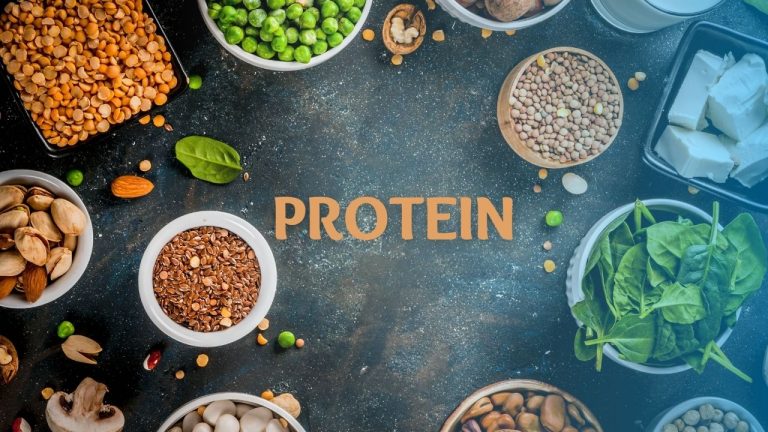
Many people believe that they need to cut out all protein sources when trying to lose weight. However, this could not be further from the truth. Protein is an essential nutrient for weight loss, as it helps to promote satiety and prevent muscle loss. So, how much protein do you need to lose weight? While there are various factors to consider, a general guideline is to consume 0.7-1 grams of protein per pound of body weight. For example, if you weigh 150 pounds, you need to consume between 105 and 150 grams of protein per day. Of course, this is just a general guideline, and you may need more or less protein, depending on your circumstances. However, including protein at every meal is a great way to ensure that you are meeting your needs.
How to add more protein to your diet?
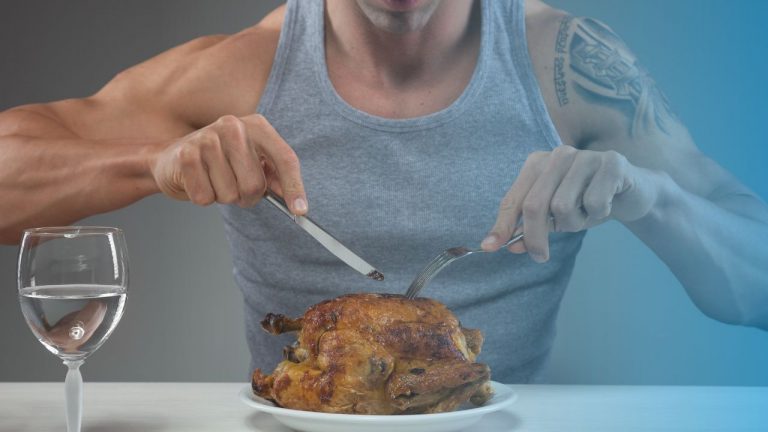
Adding more protein to their diet is a crucial goal for many people. Protein is essential for building muscle, repairing tissue, and maintaining a healthy weight. There are a few simple ways to add more protein to your diet. First, include protein-rich foods at every meal. Good protein sources include lean meats, seafood, eggs, dairy, beans, and nuts. You can also add a protein supplement to your diet. Protein powders are available in various flavors and can be added to smoothies, shakes, and other beverages. Finally, make sure you’re getting enough calories overall. If you’re not eating enough calories, your body will break down muscle tissue for energy, leading to weight loss and a decrease in muscle mass.
How protein can help you lose weight?

When it comes to losing weight, most people are well-versed in the importance of moving more and eating less. However, what many people overlook is the crucial role that protein plays in keeping us satisfied and helping us lose weight. Protein helps to keep us feeling full for longer after a meal, which reduces our cravings for unhealthy foods. Additionally, studies have shown that protein positively affects both muscle growth and fat loss. By including plenty of protein in your diet, you can achieve overall better health and make it easier to reach your weight loss goals. So if you’re looking to drop some extra pounds, be sure to include plenty of high-quality protein in your diet!
The benefits of eating protein
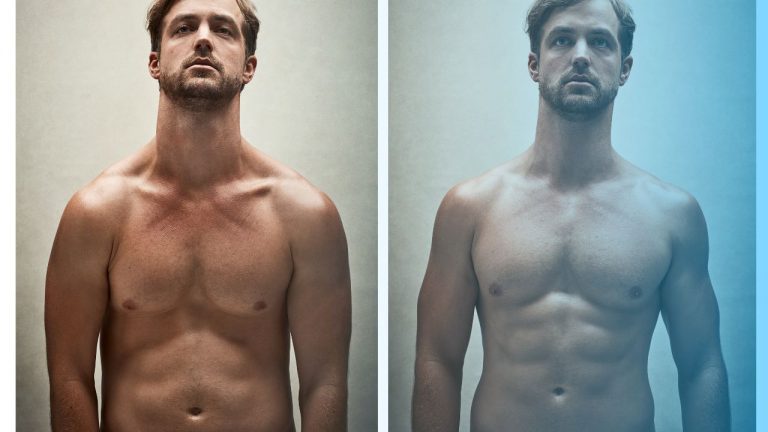
Protein is an essential macronutrient that plays a crucial role in virtually all aspects of our body’s functioning. It helps repair and rebuild muscle tissue, boosts our immune system, and supports many chemical reactions that sustain life. Not surprisingly, eating plenty of protein is crucial for maintaining good health. In addition to getting regular servings of meat and seafood, there are many other ways to increase your protein intake. For example, you can eat more plant-based proteins like beans and Greek yogurt or get extra protein from foods like eggs and cheese. Whatever your source, incorporating protein into your diet has clear health benefits, making it one of the essential nutrients you can consume. So don’t forget to include plenty of protein-rich foods in your next meal – it will help you stay energized throughout the day!
How to make sure you’re getting enough protein
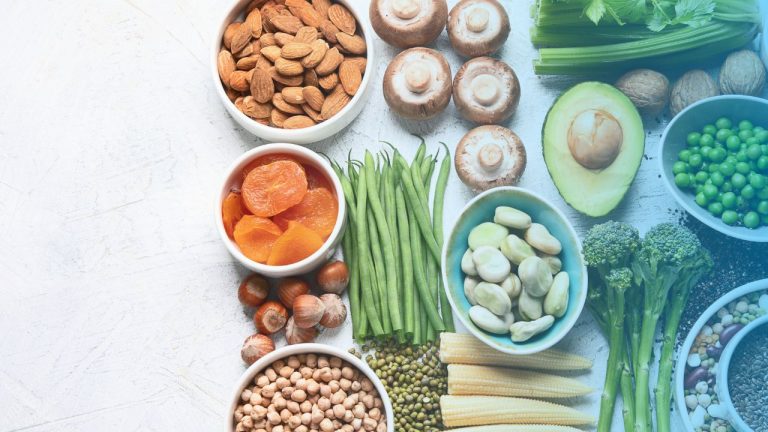
The most common way to get enough protein in your diet is through eating animal-based products like meat and dairy. However, if you’re worried about your protein intake, there are other options to consider. For example, legumes like chickpeas and lentils are excellent plant-based protein sources, while nuts and seeds like almonds and chia seeds are also rich in this vital nutrient. Of course, getting enough protein is not just about what you eat – it’s also important to be mindful of how much you’re consuming. If you’re trying to up your protein intake, try measuring out your portions or aiming for one or two high-protein snacks per day. With careful planning and plenty of nutritious ingredients, it’s easy to make sure you’re getting all the protein you need!
Recipes that are high in protein
A high-protein diet has many benefits, including helping to build muscle, reducing hunger, and aiding weight loss. While there are many ways to get protein from food, some recipes are more protein-rich than others. Here are a few examples of recipes that are high in protein:
- Grilled chicken breast with quinoa and vegetables: This recipe packs in 26 grams of protein per serving, making it an excellent option for boosting their intake.
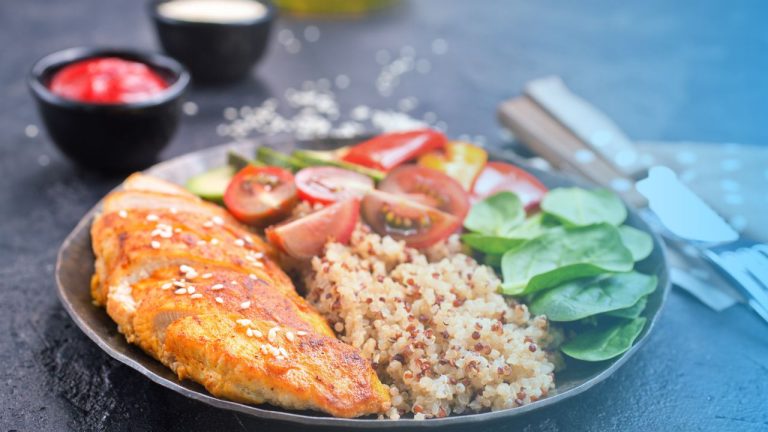
- Salmon with roasted Brussels sprouts and sweet potatoes: This dish provides 28 grams of protein per serving, making it a filling and nutritious option.
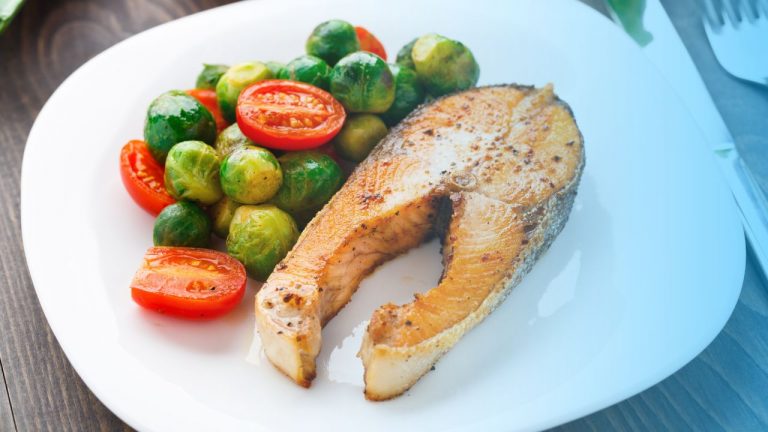
- Turkey burger with lettuce and tomato on a whole wheat bun: This recipe offers 30 grams of protein, making it a perfect choice for anyone looking for a hearty and satisfying meal.
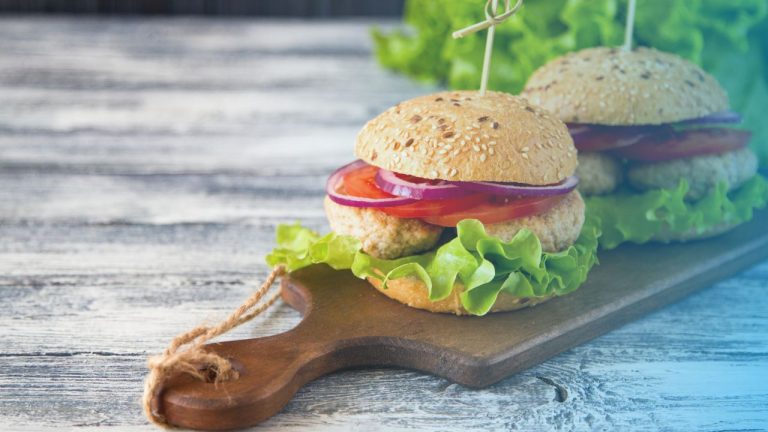
Whether you’re trying to increase your protein intake or simply looking for some delicious and nutritious recipe ideas, these high-protein recipes will hit the spot.
FAQs about Protein
What is protein? Protein is a macronutrient essential for the growth and maintenance of all living organisms. It is made up of long chains of amino acids, which form the “blueprint” for almost every biological process in the body. While different types of protein vary in their exact composition, they are all comprised of these building blocks and function to promote tissue repair, regulate physiological processes, and provide energy. Familiar protein sources include eggs, meat, nuts and seeds, soy products such as tofu or tempeh, and dairy foods like milk and cheese. For those looking to add more protein to their diet or interested in learning more about this vital nutrient, here are some frequently asked questions about protein:
- How much protein do I need each day?
There is no single answer to this question, as different people have different needs depending on age, body size, activity level, etc. However, most people should aim to consume approximately 0.8 grams of protein per kilogram of body weight each day. So, for example, a 130-pound person (about 60 kg) would need around 50 grams of protein per day.
- What are some excellent sources of plant-based protein?
Plant-based protein sources include legumes such as beans and lentils, nuts and seeds such as almonds and chia seeds, and soy products like tofu or tempeh.
What are some excellent sources of animal-based protein?
Animal-based protein sources include meat, poultry, fish, eggs, and dairy products.
How can I make sure I’m getting enough protein?
There are a few different ways to make sure you’re getting enough protein each day. First, you can measure out your portions or aim for one or two high-protein snacks per day. You can also add protein-rich ingredients to recipes, such as adding beans to a soup or using ground beef in a tomato sauce. Finally, you can supplement your diet with protein powder or bars if you find it challenging to meet your needs through food alone.
Conclusion
Protein is an essential nutrient that has many benefits for our health. If you’re looking to lose weight, include plenty of protein in your diet. There are many ways to get protein from food, so find what works best for you and enjoy the benefits of a high-protein diet!



